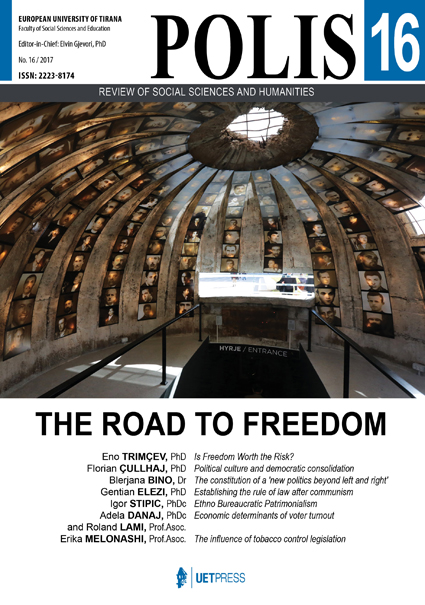The influence of tobacco control legislation on smoking rates: A review of empirical research
The influence of tobacco control legislation on smoking rates: A review of empirical research
Author(s): Erika MelonashiSubject(s): Substance abuse and addiction, Health and medicine and law, Sociology of Culture, Social Norms / Social Control, Sociology of Politics
Published by: Shtëpia botuese “UET Press”
Keywords: Framework Convention on Tobacco Control; smoking rates; attitudes; social norms;
Summary/Abstract: Smoking is one of the most widespread health risk behaviours worldwide. The Framework Convention on Tobacco Control represents the most successful and inclusive attempt to control the smoking ‘epidemic’, involving as many as 180 countries worldwide. The convention regulates aspects such as tobacco prices, advertising, smoking in public places etc., having as the ultimate goal the reduction of smoking rates. The present review discusses cross-country empirical evidence on the association between the Convention implementation and overall reduction in smoking rates, while also focusing on the mediator variables involved in the process. It is concluded that apart from legislative enforcement, the consideration of attitudinal and social normative variables is important in achieving the long term goal of reducing smoking rates, especially in countries with very high smoking prevalence (e.g., Albania, Greece). Hence intervention programs addressing mediating variables are necessary in order to boost informal mechanisms of behavioural control.
Journal: Polis
- Issue Year: 2017
- Issue No: 16
- Page Range: 133-140
- Page Count: 8
- Language: English

